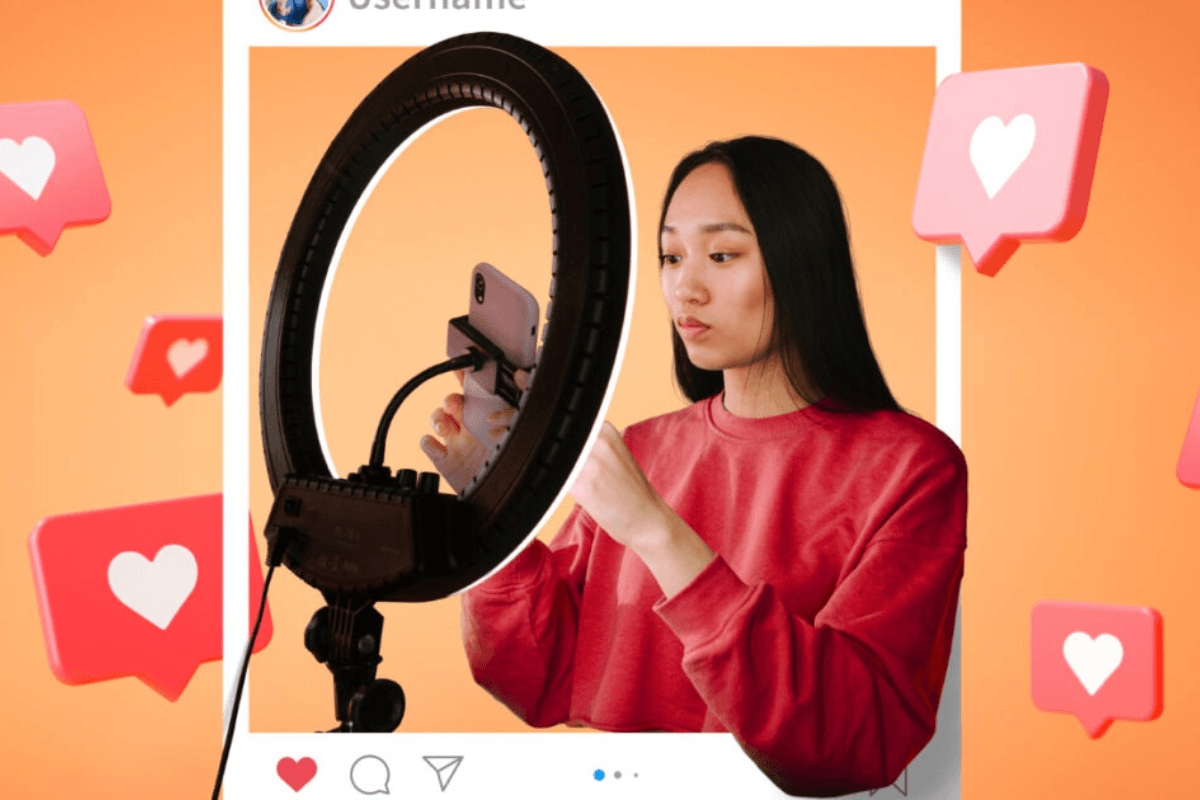The world of marketing is changing rapidly, and one of the biggest shifts we’re seeing right now is how marketing Funnels are evolving in the Gen Z & Gen Alpha era. These younger generations aren’t just influencing trends; they’re completely reshaping them. Their expectations are driving big changes across the board, from digital marketing trends and customer journey evolution, to how brands use personalized marketing, multi-channel strategies, and even AI in marketing funnels. With the rise of social media marketing funnels, the growing impact of influencer marketing, and the push toward smarter, more responsive tools, it’s clear that we’re stepping into the future of marketing automation. And understanding Gen Z consumer behavior and smart Gen Alpha marketing strategies is key to keeping up.
So, what does this all mean for brands trying to stand out and connect? It means rethinking the funnel, not as a straight path, but as a flexible, ever-changing experience. At Brandcom, we’re here to help you understand what’s shifting, why it matters, and how to build smarter strategies that actually speak to today’s audiences. Let’s dive into what’s driving the new wave of marketing, and how you can stay ahead with marketing Funnels in the Gen Z & Gen Alpha era.
Gen Z – Proactive, self-researching and has certain standards
Gen Z (born between 1997 and 2012) is the first generation to grow up with social media, smartphones, and high-speed internet. They stand out for their ability to proactively seek information, regularly researching and analyzing products before making a purchase. According to a survey from Snipp, 68% of Gen Z read at least 3 online reviews before deciding to buy a product. In addition, McKinsey points out that 70% of Gen Z do not trust traditional advertising and instead rely on user-generated content (UGC), influencers, and digital communities to make decisions. Platforms such as TikTok, Instagram, and YouTube are key sources of discovery, with over 53% of Gen Z saying they are most influenced by user-generated content (HubSpot, 2023). This proactiveness makes them a target audience that requires brands to be transparent, authentic, and quickly catch up with digital marketing trends.
Moreover, the evolution of the customer journey is clearly reflected in how Gen Z evaluates and interacts with brands, moving across multi-channel marketing platforms and engaging with social media marketing funnels that offer both entertainment and utility. This dynamic interaction showcases the growing importance of marketing funnels in Gen Z.
How Gen Z interacts with digital content
Gen Z consumer behavior is deeply shaped by authenticity and data-driven decisions, driving an increasing shift toward personalized marketing efforts. Gen Z was born into the tech boom, but they approached technology with a relatively complete level of awareness, so they use technology as a tool to connect, explore, and express themselves. They favor interactive, authentic, and concise digital content, especially short videos such as TikTok, Instagram Reels, or YouTube Shorts. According to Adobe’s report (2022), 65% of Gen Z said they use social media platforms to find creative inspiration, and 76% of them create online content at least once a month. At the same time, Gen Z tends to be critical of branded content, not easily persuaded by simple advertising but need close, transparent messages.
They use technology wisely: combining entertainment, learning, and lifestyle shaping. Brands that leverage AI in their marketing channels can better predict needs, create relevant content, and streamline interactions with this tech-savvy demographic. These practices become even more impactful when integrated into marketing funnels in the Gen Z.
Gen Alpha – Oriented by environment and family
Gen Alpha (born 2013 and after) is the first generation to grow up entirely in the digital world, exposed to iPads, YouTube Kids, and games like Roblox from a very young age. Many children have been using smart devices since they were 1-2 years old, forming an early connection to technology. According to Common Sense Media (2023), nearly 50% of children under the age of 8 in the United States own or use a personal tablet, and this number is growing rapidly worldwide. Unlike Gen Z, who often use technology to find information and create content, Gen Alpha consumes digital media in a sensory and visual way.
They are drawn to animated content, cute characters, and virtual environments in games like Minecraft and Roblox, or educational platforms enhanced through video games. A report from Statista notes that engagement in AR/VR activities among children aged 5-10 increased by more than 120% from 2020 to 2023. This signals a shift in the evolution of the customer journey for this younger generation, as their interactions with content are more emotional than analytical. Therefore, Gen Alpha marketing strategies should emphasize immersive, entertaining, and visually engaging experiences that appeal to their emotions, while also considering the influence of parents on their purchasing decisions, especially when viewed through the lens of marketing funnels in the Gen Alpha era.
Gen Alpha significantly affects family spending
Despite their young age, Gen Alpha holds significant soft power in household spending. According to Marketing Dive (2023), 87% of parents admit that their children directly influence their family’s purchases, especially when it comes to toys, snacks, and educational apps. SuperAwesome also found that 65% of Gen Alpha kids discover brands through YouTube, with 43% preferring products that connect to characters or virtual adventures. These findings highlight the importance of aligning marketing approaches with digital marketing trends that are tailored to experiential engagement.
This generation isn’t yet processing detailed product reviews, but their preferences shape household decision-making, making their role in social media marketing increasingly important even before they reach full consumer independence. These shifts emphasize how necessary it is for marketers to integrate emotional design and character-based branding into marketing funnels in the Gen Alpha era.
While Gen Z is a self-directed consumer generation, capable of analyzing and making decisions based on reviews, social media, and community trends, Gen Alpha is still in the guided stage, with the ability to indirectly influence through tastes and demands from parents. Gen Z consumes based on beliefs and data, while Gen Alpha consumes based on emotions and visual experiences – often through fun content, gamification, and favorite characters. This difference is a key factor for brands to adjust their marketing strategies to suit each age group, especially when assessing the influencer marketing impact and envisioning the future of marketing automation tailored to their unique consumption patterns.
Pros & Cons for marketing funnels
Pros – When funnels are still valuable in the Gen Z & Alpha era
Marketing funnels remain strategically useful, particularly when adapted to non-linear behaviors:
Gen Z funnels benefit from precise content segmentation — from awareness via viral content to conversion via retargeting and dynamic offers.
Gen Alpha requires early engagement strategies through gamification, animation, and emotional storytelling, laying the groundwork for long-term brand relationships.
As Neil Patel states, “Gen Z doesn’t follow steps; they follow signals.” Funnels today must reflect fluid engagement loops, supported by cross-platform data, influencer ecosystems, and real-time behavioral signals.
Cons – When funnels no longer fit non-linear consumer behavior
The traditional AIDA (Awareness–Interest–Desire–Action) model presumes a rational, sequential journey. This assumption fails with audiences who leap from discovery to action in minutes (Gen Z) or who influence purchases emotionally (Gen Alpha). Additionally, these generations are active content creators, not just passive consumers — sharing, reacting, and shaping brand narratives online.
The implication: marketers must embrace funnel models that prioritize community, feedback, and interactivity, rather than rigid stages.
Winning strategies for a new era
Lifecycle Thinking: Move beyond campaigns to long-term consumer relationship building.
AI & Personalization: Leverage browsing data and predictive analytics for relevant content delivery.
Influencer Integration: Treat influencers as trust-builders and cultural translators.
Multi-Channel Execution: Ensure seamless experience across social, mobile, gaming, and web.
Emotional & Experiential Design: Particularly critical for Gen Alpha engagement.
As Prof. Scott Galloway notes, “The purchase funnel is dead. What matters now is influence, community, and velocity.” This insight underscores the need for fluid, responsive, and insight-driven funnels that reflect the realities of younger consumer cohorts.
Success in the Gen Z and Gen Alpha era requires marketing funnels that are technologically enabled, culturally attuned, and structurally agile. Personalized marketing is no longer a differentiator, it’s the baseline expectation. Brands must prioritize trust, co-creation, and emotional resonance at every touchpoint of the evolving customer journey.
Source: BRANDCOM






